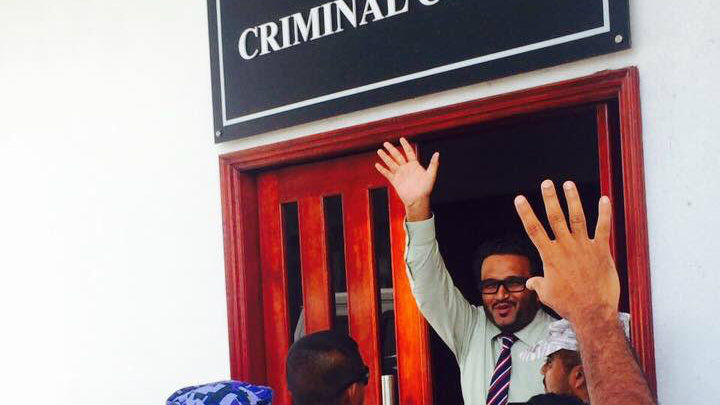Witnesses testify about coffee-table conversation in ‘sniper’ plot trial
Former Vice President Ahmed Adeeb, who is serving a 33-year prison sentence on corruption and terror charges, is accused of hiring an alleged Sri Lankan sniper, Lahiru Madhushanka, to shoot President Abdulla Yameen in October last year.

19 Sep 2016, 09:00
Two anonymised witnesses testified about a coffee-table conversation today in the trial of former Vice President Ahmed Adeeb, two of his associates, and a Sri Lankan man on charges of conspiring to assassinate the president.
Adeeb, who is serving a 33-year prison sentence on corruption and terror charges, is accused of hiring the alleged Sri Lankan sniper, Lahiru Madushanka, to shoot President Abdulla Yameen in October last year.
Adeeb’s associate Fazeel Hameed is accused of conspiring with him to hire the sniper. The fourth defendant, Ishaq Hussain, who was charged with accessory to murder, is alleged to have delivered the payment.
Testifying via teleconference with a disguised voice, the first prosecution witness said he met Fazeel the day after the September 28 blast on Yameen’s speedboat, an assassination attempt for which Adeeb has been convicted.
Become a member
Get full access to our archive and personalise your experience.
Already a member?
Discussion
No comments yet. Be the first to share your thoughts!
No comments yet. Be the first to join the conversation!
Join the Conversation
Sign in to share your thoughts under an alias and take part in the discussion. Independent journalism thrives on open, respectful debate — your voice matters.




